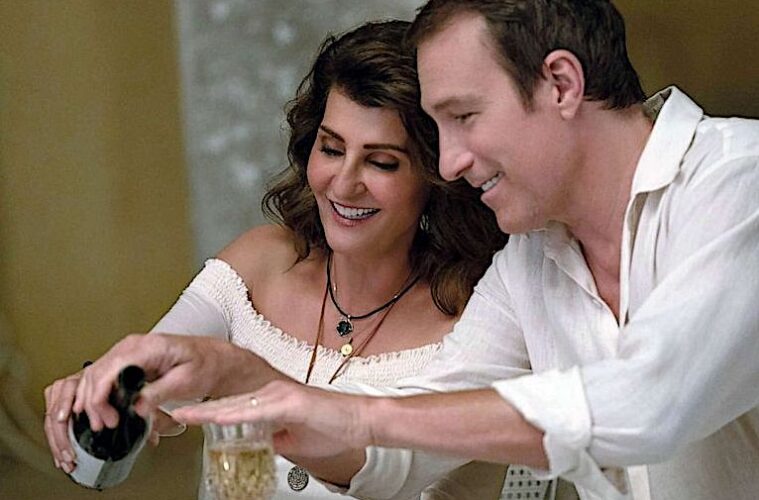 It’s easy to see why the cast wanted to attend another Greek Wedding. They got to spend a month under the turquoise spell of Greece, where the film is set, and millions of people are likely going to watch them enjoy it. More than that, they got to showcase a culture not often seen in movies, which was the main reason director Nia Varaldos’ original was so much fun. It’s harder to pinpoint what makes My Big Fat Greek Wedding 3 an escapist or even needed another follow-up.
It’s easy to see why the cast wanted to attend another Greek Wedding. They got to spend a month under the turquoise spell of Greece, where the film is set, and millions of people are likely going to watch them enjoy it. More than that, they got to showcase a culture not often seen in movies, which was the main reason director Nia Varaldos’ original was so much fun. It’s harder to pinpoint what makes My Big Fat Greek Wedding 3 an escapist or even needed another follow-up.
No one is saying these actors shouldn’t have a breezy trip, but it would have been nice if more of their environs could have been translated to the screen. The best vacation movies are palpably and pleasurably atmospheric, so much so, you can almost feel the sun beating down on your back when you watch them. When the Portokalos arrive in Athens, however, it feels more like a punchline than a place to visit.
Part of what made the first entry work were the jokes, especially the ones centered around Toula’s (Varaldos) love interest Ian (John Corbett), who was thrown into the pit of Greek culture like a zebra into a den of lions. He made it out with a wife anyway, despite Toula’s parents trying to sabotage his best efforts. Now the couple is off to Corfu, where they attempt to find their patriarch’s friends around the island.
The mission turns out to be harder than expected because the village is almost devoid of citizens and the entire family seems to have been invited, including their college daughter Paris (Elena Kompouris), a scene-stealing Aunt (Andrea Martin) and a brother (Louis Mandylor) who shaves his nose in public. In keeping with tradition, all these characters are thrown into a litany of situations that grow increasingly chaotic.
The entire thing is crammed with obnoxious caricatures, pratfalls and sight gags that clash with the quiet scenery. It’s one thing to have a bunch of loud relatives in Chicago (it’s Chicago), but here it feels out of place when everything around them is so idyllically peaceful. A satire can be both beautiful and witty at the time, but it takes more than people screaming or bumping their heads to help the humor part land.
This sequel offers more of the same franchise beats–the wacky dinner parties, the silly adventures and the reaction shots of confused bystanders–but none of it works on a comedic or emotional level. The real draw is the connection between a Syrian refugee and a Greek local who–like the protagonists in 2002–have to overcome racial boundaries. Their relationship feels as authentic as the century-old recipes served by Toula’s grandmother. It’s a shame the series couldn’t be as well preserved.
Editor’s note: The disclaimer below refers to advertising posts and does not apply to this or any other editorial stories. LA Weekly editorial does not and will not sell content.
Advertising disclosure: We may receive compensation for some of the links in our stories. Thank you for supporting LA Weekly and our advertisers.

